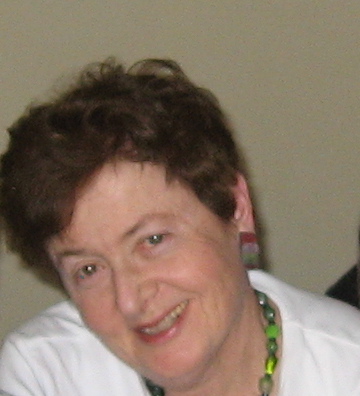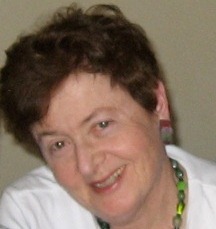 What do I owe the people I write about? This concern is ongoing, whether I’m writing about family as in my marriage memoir, Thoughts from a Queen-Sized Bed, or about strangers I meet, as in Good Neighbors, Bad Times, Echoes of My Father’s German Village.
What do I owe the people I write about? This concern is ongoing, whether I’m writing about family as in my marriage memoir, Thoughts from a Queen-Sized Bed, or about strangers I meet, as in Good Neighbors, Bad Times, Echoes of My Father’s German Village.
Actually, I’m sometimes more concerned for strangers than for those I live with every day. Family can get mad at me. They can challenge my sense of truth. They can sue to keep me honest. Fortunately, none have—partly because, except for my sister, they are reasonable if I am reasonable; partly because I keep two caveats in my head while writing. One is Annie Dillard’s advice: “Writing memoir is an art, but not a martial art!” The other is from Kim Barnes after she discovered that, despite their battle scenes, her father, much to her surprise, liked her memoir In the Wilderness:
One thing that we always assume, wrongly, is that if we write about people honestly they will resent it and become angry. If you come at it for the right reasons and you treat people as you would your fictional characters—you know, you don’t allow them to be static—if you treat them with complexity and compassion, sometimes they will feel as though they’ve been honored, not because they’re presented in some ideal way but because they’re presented with understanding.
Both authors’ advice, however, was not enough help in the kitchens and living rooms of the Christians and Jews I met and interviewed about my father’s German village. Everyone was gracious; many served me homemade linzertorte. But unlike my family, I knew very little about them, and so had no context for processing what they were telling me about their memories and lives. Plus I had a built-in bias: these were Germans and I was Jewish, a child born in the US to parents who fled their country in the 1930s, so when they said, “Everyone got along before Hitler,” my struggles with fairness became part of the story. Finally, they were old people, unsophisticated, who thought I was only gathering the objective facts of their lives. And no matter how often I tried to explain narrative nonfiction, they did not understand that I was going to recreate them fully on the page, as I experienced what they said, thought, and did before, during, and after Nazi times.
One big question: Do I use real names? I had their written permission so I could—but should I? These people, as it turned out, were neither heroes nor villains, so were names ethically necessary or a bad idea? With my family, I had no choice; my husband Stu was my husband Stu. But in Good Neighbors, Bad Times, I could follow the tradition of other writers of nonfiction books about small villages—and use pseudonyms.
In the end, like Carlo Levi’s Christ Stops at Eboli and Lawrence Wylie’s Village in the Vaucluse, I changed names. First, it universalized the story so people in other German villages couldn’t let themselves off the hook, saying, “Oh, that was X. We are Y.” Just like if you write “an Ivy League school,” Harvard can’t say, “Oh, that’s Princeton, not us!” Second, and most important, the names were not essential to my story. Whether the postman was Herr Stolle or Herr Stoner had no consequence; he is still the young man in Hitler’s army who spent his retirement years researching the history of the village Jews. His life is complicated, and as Kim Barnes advises, my challenge was to honor that complexity.
Since then, when I write nonfiction, I’m comfortable with this rule of thumb: If people are neither famous nor infamous, they deserve privacy whenever possible. At the very least, they should not be hurt or embarrassed without good reason. I always let the reader know: sometimes with initials; sometimes with a “Let’s call her….” ‘ sometimes with a footnote, such as, “I’ve changed the name and some identifying details to honor requests for individual privacy.”
This rule has served me well. Friends continue meet for lunch, strangers still offer me linzertorte or the equivalent, and I feel I am writing true.
